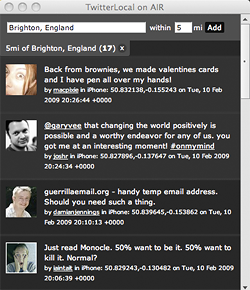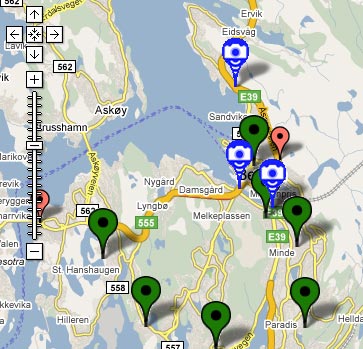A nice hyperlocal story in which Journalism.co.uk plays a wee bit o’ a role.
A few weeks ago a good discussion got going at the Frontline Club on the future of regional media.
Roy Greenslade, journalism professor, blogger and resident of Brighton said:
“It’s for the good of the whole community that it [a local newspaper] acts. That loss is something people won’t necessarily be fighting for because they don’t know they’re losing it. We as journalists – that’s our job – it’s for us to ensure that we try and fight to save it.”
In the audience, next to your very own Journalism.co.uk contingent (we didn’t quite out-number the ex-Press Gazetters) sat Jo Wadsworth, who started as web editor of the Brighton Argus in February.
Now – as context – Jo Wadsworth had corrected one ‘Weige’ on Greenslade’s blog a little while back. Weige had it on ‘good authority’ that the Argus didn’t have an online team. Oh yes it does, retorted its new web editor.
Fast-forward a few months: Greenslade’s comments at the Frontline got Wadsworth thinking. Wouldn’t it be good to get him to put his hyperlocal money where his hyperlocal mouth was, she cheekily joked to Journalism.co.uk afterwards. Go on… we egged her on. J.co.uk, for one, had been impressed by his local butcher knowledge over a drink in the bar afterwards.
So, today comes this announcement from Roy Greenslade:
“So, dear readers, since I happen to live – at least part of the year, anyway – in the city of Brighton and Hove, I am planning to become the community reporter for the Kemp Town area of Brighton.
“Now that’s what I call going back to basics.”
Jo Wadsworth had this to say to Journalism.co.uk: “We were talking after the Frontline event about Kemp Town, where I’ve just moved to, and it became very clear he was passionate about the neighbourhood he’s lived in for many years. From there, it was an obvious step to take to invite him to be our newest community correspondent – and the first, I hope of many more.”
And Greenslade? His patch is not exactly defined yet, he told Journalism.co.uk, but he has started to form some ideas.
“I hope to take up topical issues raised by the people who live in what is a very diverse community, whether it be the proposals to develop the marina and the Blackrock shoreline or the continuing annoyance of litter and rubbish on the streets. And I expect to open a dialogue with the city’s councillors who represent the area. What do they do? Who are the community police officers, and how do they operate?
“I want to highlight some of the characters who one sees on the streets and in the shops. I also plan to deal with some of the rich history of the Regency houses, which were originally homes to the titled, the famous and well-heeled. Though there are many blue plaques in this area, for example, many the names mean nothing to current residents. Who was Harrison Ainsworth, for instance, the man who once lived in the Arundel Terrace house where I have lived for 38 years?
“I guess I might get into arts and culture too, with the Bombay Bar as one obvious prospect.”
We’ll keep you posted with the link to Greenslade’s content when it goes live. Journalism.co.uk, also residents of Brighton, will definitely be making the most of his local contribution.


 What the news site came up with, in addition to their normal coverage, was a Google Map where readers could plot in where they encountered traffic problems.
What the news site came up with, in addition to their normal coverage, was a Google Map where readers could plot in where they encountered traffic problems.